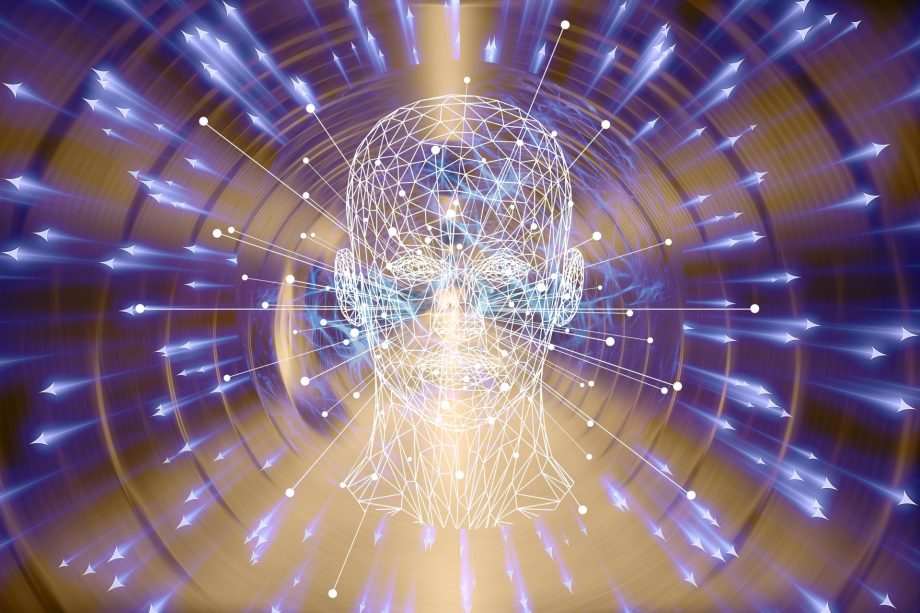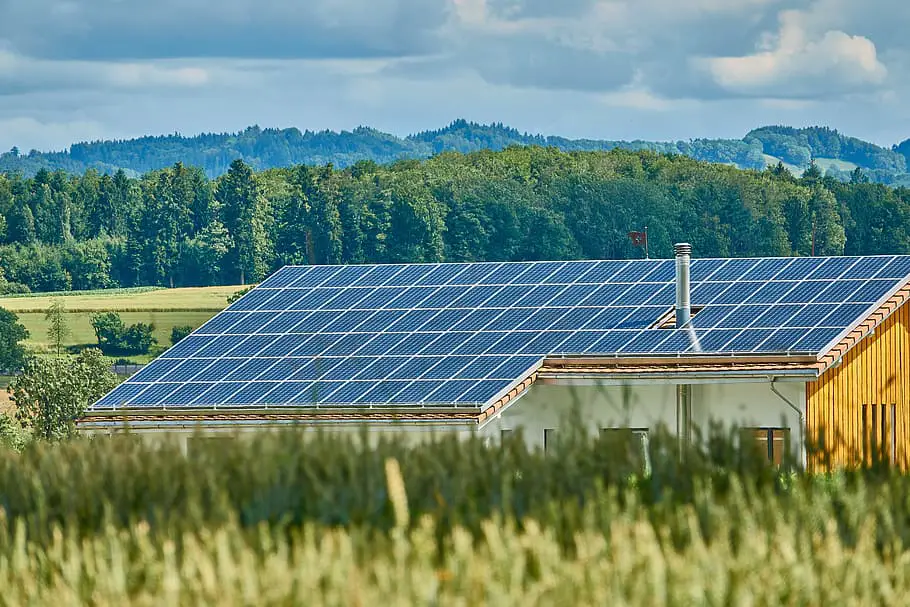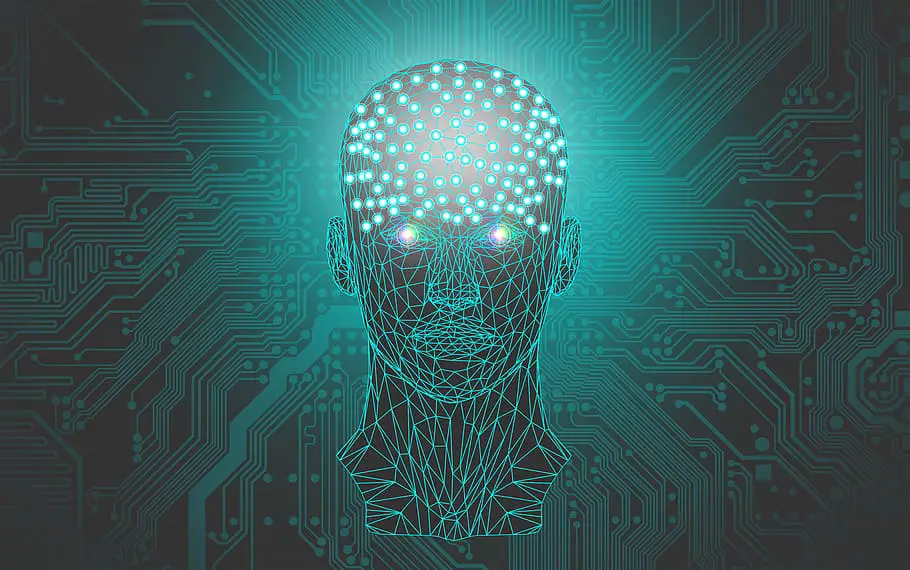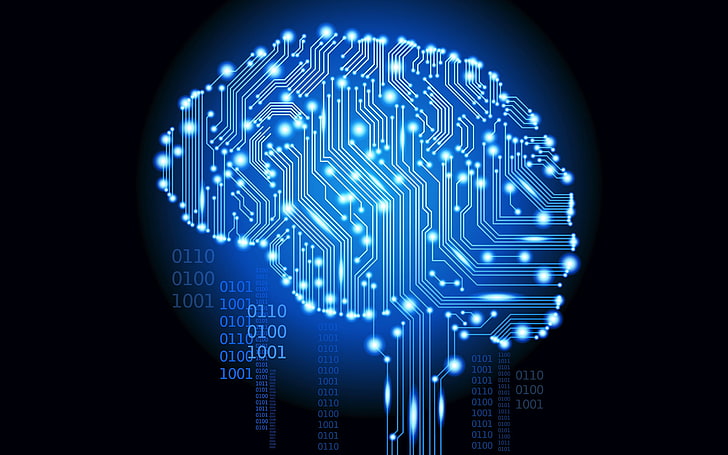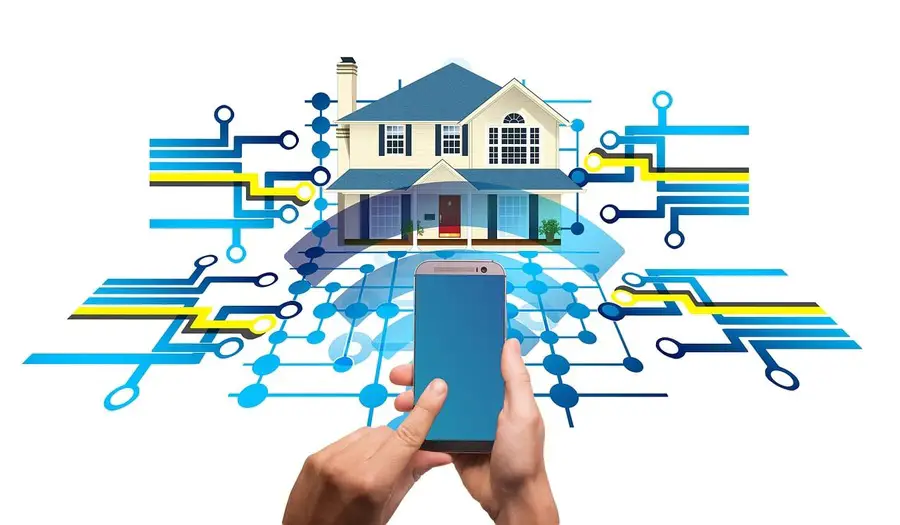
Discover the top ways AI can improve energy efficiency in homes! Let’s embrace smart living and reduce our carbon footprint together.
Have you ever wondered about the magic blend of technology and sustainability?
Welcome to the world of Artificial Intelligence (AI). In this fascinating space, we are about to explore the various ways AI can improve energy efficiency in homes.
So sit back, relax, and let’s embark on this exciting journey to make our homes smarter, greener, and more cost-efficient.
Let’s unlock the future of sustainable living, shall we?
Ways AI Can Improve Energy Efficiency in Homes
We’re about to delve into a really interesting topic: how AI can help us lead more energy-efficient lives at home. Sounds intriguing, right?
We’re going to unravel how AI is shaping our home energy usage in some pretty smart ways.
We’ll cover topics from automated thermostats and smart lighting to predictive maintenance and AI-powered energy management systems.
So, whether you’re already an AI enthusiast or just starting to explore, there’s a lot to learn and plenty of ways to get more energy-efficient. Excited? Let’s get started!
Brief Overview of AI and Energy Efficiency
Let’s start with the basics, shall we? When we talk about Artificial Intelligence or AI, we’re referring to machines and software designed to mimic human behavior and thought processes.
Now, couple that with energy efficiency, the practice of using less energy to perform the same task.
Marrying these two concepts has opened up a whole new realm of possibilities.
With AI, we can now optimize energy usage like never before, leading to significant cost and energy savings.
But how does that translate to your home? Let’s explore.
Importance of Energy Efficiency in Homes
We spend a large chunk of our lives at home, so it’s no surprise that residential spaces account for a considerable portion of energy consumption.
Energy efficiency in homes isn’t just about reducing your electricity bill (though that’s a nice perk!).
It’s about decreasing our carbon footprint, promoting sustainability, and creating healthier living environments.
By making our homes more energy-efficient, we contribute to lessening the strain on our planet’s resources.
Plus, let’s be honest, who doesn’t love the idea of a smart, automated home?
Role of AI in Improving Energy Efficiency
Now, this is where it gets really exciting. AI is stepping in to revolutionize how we consume energy at home.
Imagine your heating and cooling systems adjusting themselves based on your usage patterns, or your lights dimming themselves when they detect enough natural light.
Yes, that’s AI working to save you energy and money. What’s more, AI can even predict when your appliances might need maintenance, ensuring they operate at their most efficient.
These aren’t just ideas from a sci-fi movie; they’re realities we’re living in right now.
Stick around, as we delve into each of these areas in more detail later in this post.
Understanding AI and Energy Efficiency
Now that we’ve gotten our feet wet, let’s dive a bit deeper into the world of AI and energy efficiency.
In this section, we’re going to dig into the nitty-gritty of how AI is shaping the way we consume and conserve energy in our homes.
We’ll break down some of the tech jargon and bring you closer to how all these fantastic, innovative things are happening.
So, whether you’re a tech whiz or a novice, there’s something for everyone. Let’s get the ball rolling, shall we?
Explanation of AI and its Capabilities
Alright, let’s kick off with AI and what it’s all about.
You’ve probably heard the term ‘Artificial Intelligence’ thrown around quite a bit.
In its simplest form, AI refers to computer systems that can mimic human intelligence like learning, reasoning, problem-solving, perception, and language.
It’s like giving computers the ability to ‘think’ and make decisions. Now, AI isn’t just for fancy robots or high-tech corporations.
From voice assistants like Alexa to personalized Netflix recommendations, AI is making our everyday lives a whole lot easier and more efficient.
Explanation of Energy Efficiency and its Importance
Let’s move on to energy efficiency. At its core, energy efficiency is about getting the most bang for your buck from your energy sources.
It’s about doing more with less, that is, achieving the same results (or even better ones!) but using less energy in the process.
The benefits? Well, they’re pretty compelling. Energy efficiency helps us save money on our utility bills, sure.
But on a larger scale, it also contributes to reducing greenhouse gas emissions, conserving natural resources, and combating climate change.
Plus, efficient use of energy can even contribute to a more resilient and reliable energy system.
The Intersection of AI and Energy Efficiency
Now, for the fun part, the fusion of AI and energy efficiency. Imagine this: you wake up in the morning, and your home has already adjusted the thermostat to your preferred temperature.
Or you leave a room, and the lights turn off automatically. This is AI working its magic to make your home more energy-efficient.
By learning our habits and preferences, AI can make intelligent decisions to optimize energy use in our homes.
But it doesn’t stop there. AI can even predict when your appliances might need maintenance before they become less efficient or break down.
In essence, AI and energy efficiency are a dynamic duo, working hand in hand to create a smarter, more sustainable world.
And trust me, we’re only scratching the surface!
How AI Improves Energy Efficiency
Alright, we’ve covered the basics. Now it’s time for the main event!
In this section, we’re going to dive into the details of how AI actually improves energy efficiency.
From intuitive thermostats to smart energy monitors, we’ll explore all the innovative ways AI is transforming our homes into efficient, eco-friendly spaces.
Ready to uncover all the cool things AI is doing to help us save energy?
Buckle up, because this journey into the world of AI and energy efficiency is about to get even more exciting!
AI in Smart Homes
So, what does a smart home with AI look like? Well, think about having your coffee ready when you wake up, or the lights automatically adjusting to your mood.
AI in smart homes is all about using sensors and devices that can learn from your patterns and make decisions to optimize energy use.
For example, a smart thermostat can learn your schedule and preferences, adjusting the heating and cooling in your home to be energy efficient and comfortable at the same time.
It’s like having a personal assistant managing your home energy use!
AI in Energy Management Systems
Next up, let’s talk about energy management systems.
These systems harness the power of AI to monitor, control, and optimize the energy consumption of your household.
With the ability to analyze tons of data in real time, these AI-powered systems can identify patterns, make predictions, and even offer recommendations for energy savings.
It’s like having a smart energy advisor at your fingertips, helping you understand where and how you can reduce energy usage and lower those pesky utility bills.
AI in Predictive Maintenance
Now, imagine knowing your fridge or washing machine is about to break down before it actually does.
That’s what AI in predictive maintenance is all about.
By constantly monitoring the performance of your appliances, AI can detect if they’re consuming more energy than usual, which often indicates a potential fault.
Getting these appliances repaired on time ensures they’re running as efficiently as possible, saving you energy and potentially costly future repairs.
AI in Energy Consumption Forecasting
AI’s got another trick up its sleeve, forecasting future energy consumption.
By analyzing past energy usage data and considering variables like weather forecasts, AI can predict how much energy you’ll use in the future.
This way, you can plan your energy usage more effectively, using your appliances at times when energy demand is low, which can also save you money if your utility company charges variable rates throughout the day.
AI in Optimizing HVAC Systems
Last but not least, let’s talk about HVAC systems, heating, ventilation, and air conditioning.
These systems can consume a lot of energy, but AI can help optimize that.
For instance, a smart thermostat learns your preferences over time and auto-adjusts to your routine, providing comfort when you’re home and saving energy when you’re not.
Plus, with predictive maintenance, AI can alert you when your HVAC system isn’t running as efficiently as it should be, helping you avoid wasted energy and unexpected repair costs.
So, with AI, not only do you get a cozy home, but you also get it in the most energy-efficient way possible!
Case Studies of AI in Energy Efficiency
Ready for some real-world examples? Fantastic! In this section, we’re moving from theory to practice.
We’ll explore a few case studies where AI has worked its magic to boost energy efficiency. T
hese stories will give you a glimpse into how AI is not just a concept but a practical tool making a significant difference in homes just like yours.
So, let’s take a look at how these AI-powered solutions are saving energy and creating more sustainable living spaces around the globe.
Case Study 1: AI in Smart Homes
Picture this: John, living in San Francisco, retrofits his home with a smart thermostat and lighting system powered by AI.
These intelligent devices learn John’s daily routines and preferences over time, adjusting the temperature and lighting based on his schedule.
When John’s away at work, the thermostat eases off the heating and cooling, conserving energy.
And if he stays late at the office? The lights stay off until he’s nearing home.
By installing these AI-driven systems, John reduces his annual energy consumption by a staggering 20%. Now, that’s what we call smart living!
Case Study 2: AI in Energy Management Systems
Now, let’s fly over to Berlin, where Maria, an eco-conscious homeowner, integrates an AI-powered energy management system into her home.
This system continuously monitors Maria’s energy usage, providing real-time insights and suggestions for improvement.
For example, it suggests she run her dishwasher at night when electricity rates are lower.
It also identifies that her old fridge is an energy hog, prompting her to replace it with an energy-efficient model.
With these changes, Maria sees her monthly utility bills drop by 30%. Not bad for an investment in AI, right?
Case Study 3: AI in Predictive Maintenance
Our final stop is Tokyo, where a high-rise residential building has installed an AI system for predictive maintenance.
This AI system tracks the performance of the building’s HVAC system and identifies an impending fault even before it impacts the residents.
Early detection allows the building management to fix the issue promptly, ensuring the HVAC system runs smoothly without wasting energy.
Over a year, the building sees a 15% reduction in energy use, showcasing how AI in predictive maintenance can offer considerable energy (and cost) savings.
Future of AI in Energy Efficiency
Excited to peek into the future? Perfect, because that’s exactly where we’re heading next!
In this section, we’ll explore the possibilities and potentials of AI in reshaping energy efficiency.
Given all the ground-breaking changes we’ve seen so far, you might wonder what more can AI offer.
Well, the answer is a lot! Let’s take a leap forward and imagine a world where AI is fully integrated into our homes, transforming them into sustainable havens.
Ready to jump into the future? Let’s take this exciting leap together!
Predictions and Trends
Looking ahead, the future of AI in energy efficiency is incredibly promising. As technology matures, we can expect AI to become even more integrated into our homes and our lives.
In terms of trends, think of even smarter homes with more AI-powered devices and appliances.
We could see refrigerators that alert you when they’re not running efficiently or ovens that automatically switch off when your meal is perfectly cooked.
AI will also play a bigger role in energy management systems.
These systems are likely to become more predictive, offering us personalized tips on how to save energy based on our specific habits and routines.
We could also see more use of AI in local and renewable energy systems, like solar panels, helping us optimize energy generation and storage.
And it’s not just about individual homes. On a larger scale, AI could help power companies balance energy supply and demand more effectively, reducing energy waste on a broad scale.
Potential Challenges and Limitations
While the future of AI in energy efficiency is certainly exciting, it’s also important to consider potential challenges and limitations.
Like any technology, AI isn’t without its hurdles.
One of the main challenges is data privacy. With AI systems collecting and analyzing large amounts of data, it’s crucial that this information is handled securely and responsibly.
Users will need assurance that their personal habits and patterns, learned by AI devices, remain private and protected.
Secondly, there’s the issue of cost. While AI devices can help save money in the long run through energy efficiency, the initial cost of these devices can be high.
This could potentially limit access to these technologies, especially for lower-income households.
Finally, like all technologies, AI isn’t perfect and can make mistakes.
These could lead to energy inefficiencies rather than improvements.
As AI in energy efficiency evolves, it will be important to continually evaluate and refine these systems to ensure they are as accurate and effective as possible.
Ways AI Can Improve Energy Efficiency in Homes FAQs
Fantastic, you’ve stuck with us this far! Now, let’s tackle some frequently asked questions.
This section is all about addressing those burning queries you might have about AI and energy efficiency.
From the simple to the complex, we’ve got you covered. Whether you’re wondering about the cost-effectiveness of smart home systems or curious about how to get started with AI in your own home, we’re here to help.
So, let’s dive into those questions and quench your thirst for knowledge, shall we?
Q: How can artificial intelligence increase energy efficiency?
A: Artificial Intelligence can increase energy efficiency in several ways.
It can automate the management of energy-consuming devices, learning from user habits to optimize their use.
For example, an AI-powered thermostat can learn when you’re usually at home and adjust the temperature accordingly, reducing energy consumption.
AI can also predict maintenance needs for appliances, ensuring they’re always running efficiently and saving energy.
Q: In what ways can home automation increase energy efficiency?
A: Home automation, particularly when paired with AI, can drastically increase energy efficiency.
Systems like smart lighting can adjust or turn off lights when they’re not needed, while smart thermostats manage heating and cooling based on your habits.
Automated blinds can control the amount of sunlight that enters a room, reducing the need for artificial lighting or heating.
All these systems work together to optimize energy use and reduce wastage.
Q: What are three ways to make a house more energy efficient?
A:
1) Install energy-efficient appliances: These consume less energy for the same output compared to their non-energy-efficient counterparts.
2) Insulate your home: Good insulation keeps heat in during the winter and out during the summer, reducing the need for heating and cooling.
3) Use AI-powered devices: As we’ve discussed, AI can optimize the use of various devices and systems in your home, saving energy.
Q: How can AI help in affordable and clean energy?
A: AI can make energy usage more efficient, which can lead to cost savings in the long run.
Additionally, AI can optimize the use of renewable energy sources like solar power.
It can predict the best times to use energy from the grid versus stored solar power, or even when to sell excess solar power back to the grid.
This not only leads to cost savings but also encourages the use of clean energy, contributing to a greener and more sustainable environment.
Ways AI Can Improve Energy Efficiency in Homes Conclusion
As we wrap things up, we’ll revisit the key points we’ve discussed and the potential of AI to revolutionize the way we consume energy in our homes.
We’ll also consider how these changes can contribute not only to our comfort and convenience but also to a more sustainable and eco-friendly future.
So, as we prepare to conclude this intriguing exploration, let’s reflect on what we’ve learned and the exciting prospects that lie ahead!
Recap of AI’s Impact on Energy Efficiency
We’ve seen throughout this exploration that AI has the potential to drastically improve energy efficiency in our homes.
From learning our habits to make smart decisions about heating and cooling to alerting us about potential faults in our appliances before they become a major energy drain.
AI is poised to become a crucial tool in our quest for energy conservation.
The integration of AI with home automation systems is no longer a futuristic concept, but a present-day reality that’s helping us reduce energy waste and save on utility bills.
Looking Ahead: AI’s Role in Sustainable Living
Moving forward, AI is set to play a pivotal role in creating sustainable and eco-friendly homes.
As AI technology continues to evolve, we can expect even more innovative applications aimed at energy conservation.
While there are challenges to overcome, particularly around data privacy and affordability, the potential benefits far outweigh the hurdles.
By embracing AI in our homes, we’re not only making a commitment to a more energy-efficient lifestyle but also taking a significant step towards a sustainable future.
After all, every bit of energy we save is a win for our planet!
Read more: AI Smart Homes Pros and Cons

